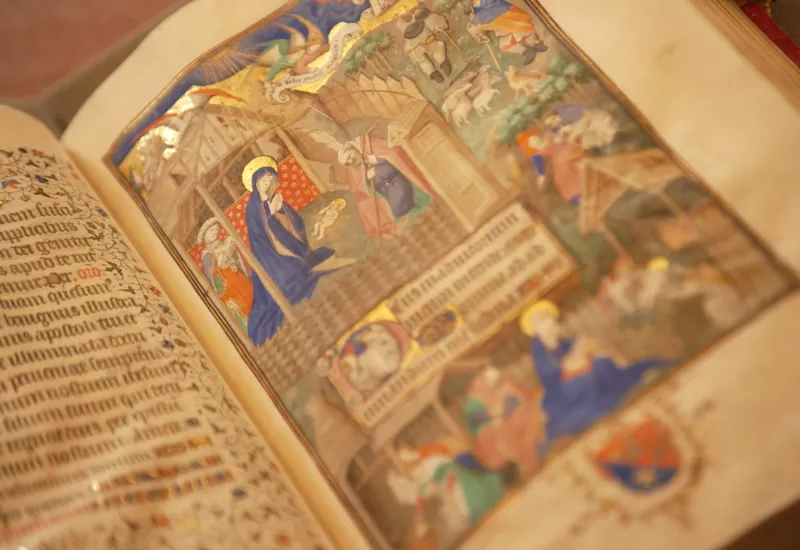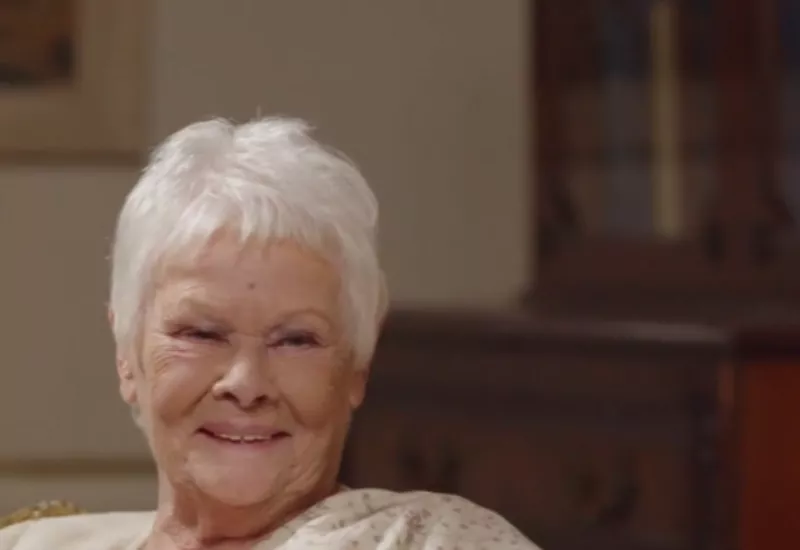The Reading Room’s coverage of Suite Française has made much of Irène Némirovsky’s daughter, Denise. Denise recalls her evacuation from France, Denise was ordered to look after the suitcase, Denise found her mother’s valuable manuscript years later and Denise ensured the publication of Suite Française. But what became of Irene’s second daughter, Élisabeth?
Élisabeth Epstein was born in Paris in the spring of 1937 and was soon nicknamed ‘Babet’ by her adoring family. When she was only two years old, Élisabeth and her older sister, Denise, were driven out of the capital to be cared for by the mother of their nurse in Issy-l’Évêque. A year later, they were finally joined by their parents. The family desperately tried to improve their circumstances and kept a low profile in a village hotel, but were spotted by the authorities and ordered to wear the yellow star. In July 1942 Élisabeth’s beloved mother, Irène Némirovsky, was deported to Auschwitz where she died of typhus soon after.
Michael Epstein tries to flee France with his two daughters as he realises their lives are in grave danger, but he is arrested and gassed as soon as he arrives in Auschwitz. In the short space of time before his arrest, he manages to entrust his daughters with some family papers, notebooks and jewels, as well as their mother’s precious unpublished manuscripts.
The two girls fled from cellar to cellar, boarding school to boarding house, until they were eventually taken in by the publisher Albin Michel. Every day they visited Paris-Est Station, hoping to find their parents in the flood of survivors from Nazi camps. When this search was fruitless, the girls decamped to the Hotel Lutetia which had been turned into a reception centre for deportees. They stood in the foyer with their names around their necks, but Michael and Irène were never to come home.
Placed under the tutelage of Albin Michel, the girls were brought up at the very heart of Parisian literary life. Élisabeth Gille grew up to be a translator and editor, as well as a revered novelist. She spent most of her career as the literary director at Denoël, and then took over the management of Rivages editions, specialising in quality foreign and detective literature. But in the early nineties she was ‘thanked’ by her employer, finding herself alone and unemployed, facing a cancer diagnosis.
Here, Élisabeth’s life took a fortuitous turn. In 1992 she published Le Mirador: Mémoires Rêvés, which is an account of the life of her mother, Irène Némirovsky. ‘Memories’ is an inaccurate rendering of the word ‘mémoires’ in the title. In its usage here, in the masculine gender, it can only mean ‘memoirs’. Following her more literary than historical bent, Gille used a fictional convention in her mother’s biography: she wrote it as remembrances.
Élisabeth Gille, with this first novel, somehow conjures up the weight of her mother’s shadow and her tragic fate, expressing for the first time in her own name the deeply literary temperament that she had already revealed many times during her career as a translator.
Élisabeth’s next novel was called Le Crabe Sur La Banquette Arrière, and this book adopted a radically different style. It is a short, autobiographical text in the form of a play, where Élisabeth Gille speaks with irony about the cancer she suffers from and explores the no-man’s land inhabited both by the long-term cancer patient and the Jewish survivor, still afflicted by the trauma of World War II. She addresses the ideas surrounding death but keeps the tone very light, as if better to keep her distance. She defines the disease through the characters who respond to her cancer and therefore discovers the strength of her will to fight. This book was successfully adapted for television in 1996 and was in the running for the coveted Goncourt Prize, but it was withdrawn from the competition after the author’s death. As recounted by Agathe Logeart in Le Monde, French television host Laure Adler suggested that as far as the Goncourt jury was concerned Gille apparently “should have had the good taste to wait a bit before dying”.
In 1996 Élisabeth writes Un Paysage De Cendres – the title literally means ‘A Landscape of Ashes’ where she looks back on the devastation of her childhood. This hugely powerful and intense book expresses through the voice of a child, the most terrifying aspects of the history of the twentieth century. The book describes her experiences as a Jewish child hidden during the German occupation and then adopted by non-Jewish resistance fighters. This work portrays the incomplete understanding of the specificity of the Holocaust, even among those sympathetic to its victims. This extraordinary novel received several literary accolades in France and was published in the US under the title Shadows Of Childhood. Élisabeth was
apparently delighted by this publication in English, and felt that the book really defined her literary career. She had taken the extreme trauma of her childhood years and turned her grief into a work of art that was to be admired and revered by many.
Élisabeth died of cancer in Paris on September 30th 1956, aged 59.



